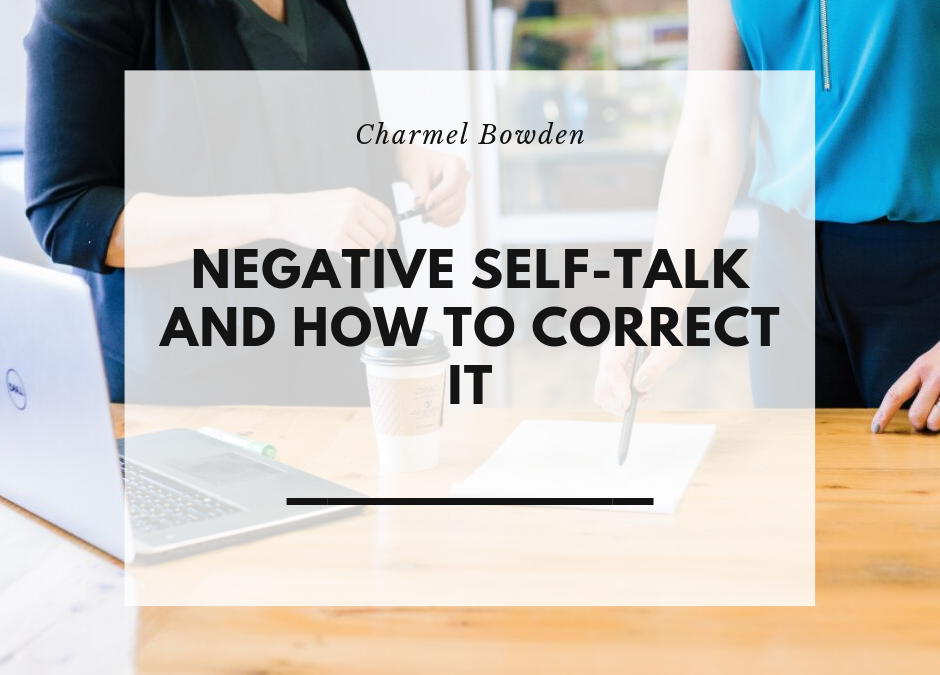The way we talk to ourselves matters. If you consider that we are creating the thoughts and our storyline, then you can also consider that you have the option to choose positive over negative. It takes a mindset of becoming aware of the bad habit and actively taking charge to correct yourself.
Is a beaten up you better than a non-beaten up you? Thinking about things you should have done differently and suffering about it is quite a different thought process than self-accepting the failure or unachieved result. Move on, take it in stride and look at what you CAN do. You simply can’t change what already happened. You can decide what happens next. With practice, you can move to this mindset and the encouraging self-talk that will allow you to hardly miss a beat.
It’s still important to evaluate where you think you got off track so that you can recalibrate effectively. But calling yourself names or blaming yourself takes an unnecessary amount of time that could be used to move forward instead.
Here are a few of the most common forms of negative self-talk and how you take one small step to change each.
Mind Reading
Have you ever assumed you know what someone else is saying or thinking? It happens so fast it’s truly a tough one to catch. We often experience it after the fact, as we walk away from a conversation and realize we have a ton of questions, or we have a good or bad feeling about the interaction.
SMALL CHANGES:
- Ask Questions: Pause for a moment, imagine taking the next step in the project and think about the information you need to get started. Sometimes someone else speaks with so much confidence you’re sure you know what they mean.
- Ask for Clarification: Ask for clarification on the details, or the frown, or the shortness in a tone of voice. Don’t walk away from an interaction thinking someone is unhappy with you. You might actually be able to make their day by checking in with them. Often times others aren’t aware of how they come across or they also assume you can read their mind and know what they mean.
Personalization
Have you ever decided to blame yourself entirely for something? This form of negative self-talk involves taking an exorbitant amount of responsibility for something you feel bad about. Making yourself feel bad or wrong is a means of control without having to get any further data. It happens often when someone gives us feedback. Even when well-intended to help, we can tend to make the worst out of it and assume that we’re a failure. This can lead to unnecessary stress, anxiety, and resentment.
SMALL CHANGES:
- Catch Yourself: It’s an avoidance strategy and keeps us from actually gathering more real information. We walk away feeling bad and that can translate to feeling bad about the other person whom you may also start to avoid.
- Be Curious: If you can, just listen. Then, ask with the most sincere curiosity for specifics and suggestions without any excuses. You’ll be much farther ahead. You’ll also be able to evaluate if the person’s assessment is accurate or not. They may be just trying to blame someone because they feel bad.
Emotional Reasoning
We often make decisions based on how we feel rather than what we value. We call this emotional reasoning. We try to find the reason we feel the way we feel vs. looking more objectively at the situation. If I feel angry or scared I may react to feel stronger and decide it’s OK to be mad back or blame back or run away instead of stepping back and really taking in what is going on.
SMALL CHANGES:
- STAR: Rather than get caught up in the feeling and choosing to react, Stop. Then Think about how you want to Act, then Respond.
- You are not your Emotions: Remember your mind drives your behavior. We just often think it’s the emotions that run the show. Express how you are feeling and ask for time if you need it. Then come back when you feel you are more grounded.
- Don’t Argue with an Angry Person: They can’t hear what you’re saying until they’ve calmed down. The best way to engage is to meet them where they’re at, tell them you acknowledge they are upset, and then ask if you can talk about it.
How We Can Combat It
Your emotions are a force to be reckoned with. The more you take charge and can acknowledge them and return to the objective thinking abilities you are more likely to be the person you want to be. Nick Wignall writes an entire guide, which goes in-depth on many other suggestions you can try to change negative thinking. It’s worth it and you’ll feel better for it.

